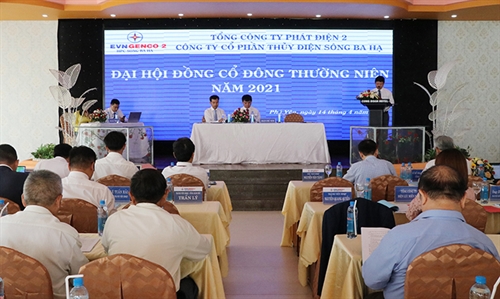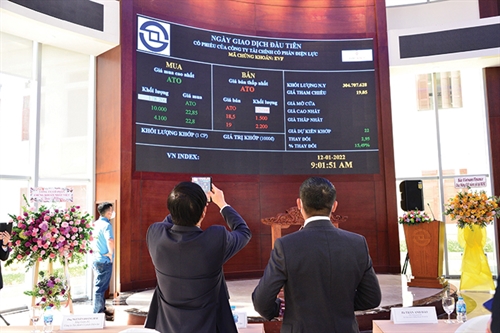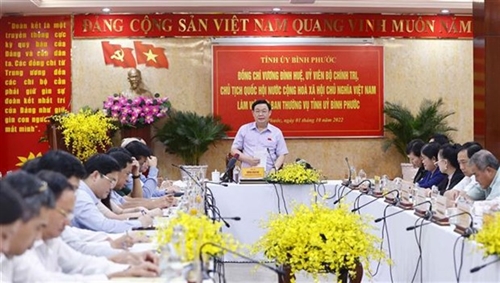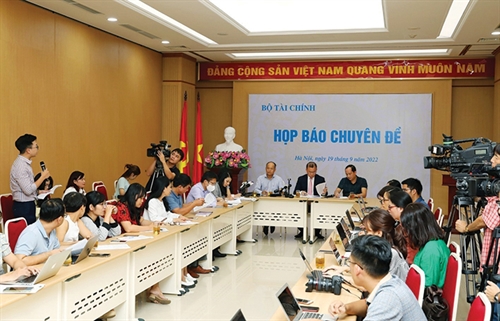The State Bank of Vietnam (SBV) has recently released Circular 11/2022/TT-NHNN (Circular 11) to improve the legal framework for bank guarantee to better suit international practices and comply with Vietnam’s relevant regulations such as the Law on Real Estate Business, Law on Investment, and Civil Code.
The new text is also expected to ensure efficient, safe and uninterrupted bank guarantee activities of credit institutions and foreign bank branches.
Coming into force from April 1, Circular 11 will replace Circular 07/2015/TT-NHNN issued in 2015 and Circular 13/2017/TT-NHNN of 2017.
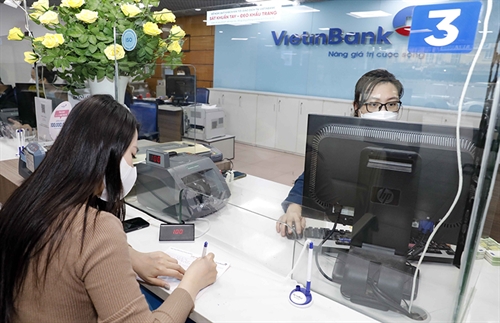 |
| Customers conduct transactions at the VietinBank’s Cua Nam office, Hoan Kiem district, Hanoi__Photo: Tran Viet/VNA |
Bank guarantee involving foreign elements
As per Article 7 of Circular 07 of 2015, documents used in guarantee transactions including guarantee provision agreements and guarantee commitments must be made in Vietnamese. In the case of guarantee involving foreign elements, the involved parties may agree on use of foreign languages but the foreign-language documents must be translated into Vietnamese, certified by the lawful representative of the concerned credit institution or foreign bank branch, and enclosed with the foreign-language version if requested by a competent authority.
Article 7 of Circular 11 also requires guarantee provision agreements and guarantee commitments to be made in Vietnamese, except three cases below in which banks may reach agreement with related parties on the use of foreign languages:
(i) Guarantee transactions in civil relations involving foreign elements as provided in the Civil Code;
(ii) Guaranteed obligations arising upon implementation of projects funded by international financial institutions; and,
(iii) Guaranteed obligations arising upon participation in international bidding packages.
However, the new rule says that foreign-language documents or data messages must be translated into Vietnamese if so requested by competent agencies. In this case, the Vietnamese translations must be certified by banks’ lawful representatives or notarized or certified and enclosed with the foreign-language versions.
Electronic bank guarantee
The new regulation adds a new form of bank guarantee, namely electronic guarantee, which is optional for credit institutions, foreign bank branches and customers.
As stated in Article 9 of Circular 11, entities providing electronic bank guarantee must ensure security, safety, data message protection and information confidentiality in accordance with the laws on money laundering prevention and control and e-transactions, the SBV’s guidelines on risk management in electronic banking activities, and relevant regulations.
Credit institutions and foreign bank branches may themselves decide on methods, forms and technologies to carry out electronic guarantee activities for the whole or each stage of the guarantee procedures, and bear all arising risks.
In case of Electronic Know-Your-Customer (eKYC), the new rule sets a limit in terms of value of each guarantee commitment issued to a customer, which is VND 4 billion for individual customers, or VND 45 billion for institutional customers.
However, the above limits are not applied in the following five cases:
(i) eKYC information is authenticated by a competent state agency, or electronically authenticated by an organizing providing e-authentication services in accordance with the regulations on electronic identification and authentication;
(ii) Customers send requests for provision of guarantee by telegram via the SWIFT system;
(iii) Customer information and guaranteed obligations match after collation via the Customs E-Payment Portal or the Vietnam National E-Procurement System;
(iv) Customers use digital signatures when requesting provision of guarantee or sign guarantee provision agreements with banks; and,
(v) Customers are banks.
The information system used for electronic guarantee must satisfy the conditions on information systems of level 3 or higher level specified in the Government’s regulations on level-based assurance of security of information systems and the SBV’s regulations on security of information systems in banking operations.
Guarantee for future houses
Compared to Circular 13 of 2017, Circular 11 sets stricter requirements for a commercial bank to provide guarantee for future houses.
Specifically, the bank’s establishment and operation license or the document on modifications to such license must have contents on bank guarantee activities; and the bank is not subject to prohibition, restriction, termination or suspension from provision of guarantee for future houses.
According to the previous regulation, a commercial bank will be regarded as capable of providing guarantee for future houses if it is not subject to prohibition from providing guarantee for future houses in the period of being placed under special control.
Circular 11 adds the definition of guarantee contract for future houses, saying that it is a guarantee provision agreement made between a commercial bank and a project owner as well as other related parties (if any) on the commercial bank’s acceptance to provide guarantee for the project owner in the sale or lease-purchase of future houses.
The new regulation also makes changes to contents of a guarantee contract for future houses.
As per Article 13.5 of Circular 11, in addition to the contents on guarantee provision agreement under the previous regulations, a guarantee contract for future houses must have the following terms:
(i) A commercial bank’s obligation to issue a letter of guarantee to the purchaser when receiving the contract for purchase or lease-purchase of a house from the project owner before the deadline for handover of the house as committed in the house purchase or lease-purchase contract;
(ii) The commercial bank’s and the project owner’s agreement that either of them has the obligation to send a letter of guarantee to the purchaser after the commercial bank issues the letter of guarantee;
(iii) The project owner’s financial obligations; and,
(iv) The term requiring the purchaser’s dossier of request for performance of the guarantee obligation sent to the commercial bank to be enclosed with the letter of guarantee issued by the commercial bank to the purchaser.
According to the previous rule, a guarantee provision agreement must have such contents as applicable laws; information about parties involved in the guarantee; guaranteed obligations; amount and currency of the guarantee; forms of issuance of the guarantee commitment; conditions for performance of the guarantee obligation; rights and obligations of involved parties, guarantee charge; agreement on compulsory acknowledgement of debts paid in lieu, interest rates applicable to the amounts paid in lieu, and obligation and period for reimbursement of debts in case of performance of the guarantee obligation; serial number, date and effect of the agreement; and dispute settlement.
As for the validity period of a guarantee contract for future houses, Article 23 of Circular 11 says that such a contract is effective from the date of its signing to the date of expiration of guarantee obligations of all letters of guarantee for the purchaser and all obligations of the project owner to the commercial bank under the contract have been fulfilled.
Meanwhile, under Article 13.6 of Circular 11, a letter of guarantee for future houses becomes effective from the date of its issuance to the date which is at least 30 days after the date of handover of the house to the purchaser as agreed upon in the house purchase or lease-purchase contract.
In case the commercial bank and the project owner have agreed to terminate the guarantee contract for future houses before its expiry date, the letters of guarantee issued to the previous purchasers remain valid until the guarantee obligation ends.





